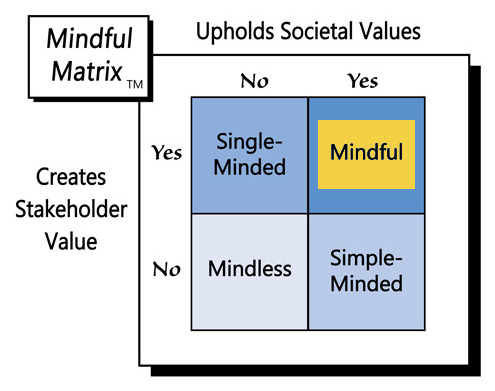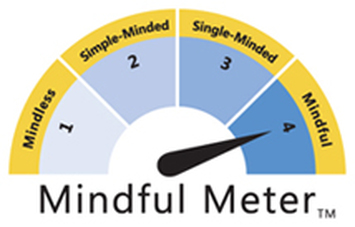Although some of these service rates may seem unreasonable, people need to be paid for their time and receive compensation commensurate with their expertise. Likewise, supply and demand dictate that if many consumers need appliance repair, but few professionals are willing to provide it, that service will cost more than others.
What happens, however, when roles are reversed and it’s the company that consumes the customer's time? You may be wondering what I mean, yet you’ve probably had such an experience when, through no fault of your own, you’ve had to take significant time to resolve an issue that was due to a business’s blunder.
Over the years, I’ve had many such experiences. Let me tell you about one that just happened . . .
Like many people, our family uses autopays for certain reoccurring expenses: rather than writing a check every month, the approved companies automatically charge our credit card. One of those reoccurring charges is for orthodontics—a privilege of parenting!
In the last billing cycle, we noticed a significant extra charge on our credit card statement from the orthodontist office. I first called the credit card company to confirm, then spoke with the orthodontist to see what happened. After some investigation they called back to explain: an employee who handles their billing had inadvertently posted another family’s charge to our account, in addition our own.
Of course, I was a little upset to have been charged several hundred dollars for some stranger’s braces, but I was glad that the office took ownership of the mistake. I also was relieved when they told me that the incident helped them identify a way to avoid such errors in the future.
I thought the orthodontist office might make amends for their mistake by offering some small concession, but they didn’t, which was fine. Resolving the issue hadn’t taken very much of my time, and I appreciated their sincere apology, as well as the promise that their billing procedure would now be better. I also reminded myself that everyone makes mistakes, and I’ve appreciated when others have forgiven mine. This, however, was not the end of the story . . .
I then needed to call the credit card company a second time to confirm that the errant charge had been removed. They told me it had not, but not to worry because the returns often a few days to post to accounts. I asked the representative in Disputes if they could contact me when the transaction went through, and she said they would.
A week later there was still no word from the credit card company, and our payment deadline was fast approaching, so I called the company again. I listened to the automated message system read our statement balance, and it was the same as before, i.e., apparently the charge still had not been removed.
I asked to speak to a “representative” and was routed to an agent who listened to my concern. He told me that the orthodontist office had removed the second charge, and the corresponding credit had been posted to our account; however, the credit would appear on our next billing statement, not the current one. In other words, in order to pay-off our account in full, we would need to remit an amount that included money we had been erroneously charged.
I thought to myself, “This isn’t fair. Why should we have to pay an amount we don’t owe this month and wait to receive the offsetting credit next month when the credit has already been issued?” Yes, we could pay the extra couple hundred dollars ahead if we needed to, but what if the errant charge had been several thousand dollars? I felt sure I was on the right side of this issue, so I pressed my point further, and the agent asked me to hold while he transferred me to a more senior representative.
After explaining my case again, the second agent told me almost immediately that my argument was accurate and that we could pay our current statement balance less the amount of the errant charge. I thanked him, and he sounded ready to end the call, but I wasn’t.
I had just had a third lengthy call with the credit card company. Granted, the initial problem was not its fault; however, they hadn’t handled well what should have been a routine issue. Furthermore, I had been forced to argue my position for about a half hour on the current call, not to mention the time I had spent on the two previous calls.
I expressed to the representative my concern, saying in so many words that my time is valuable and I felt the company had unnecessarily spent a significant amount of it. The agent seemed empathetic. He asked me to hold, and when he returned he said that they would credit our account for an amount equivalent to the card’s annual fee. I thanked him and said how I appreciated the gesture. He told me he was glad to keep me as a satisfied customer.
The money the credit card company offered us was meaningful, but just as important to me was the company’s recognition that its customers’ time is also valuable. Too often we see examples that infer the opposite, like cable companies that say they’ll send a repair technician between 1:00 and 5:00 pm, or professionals who keep us waiting for 45 minutes or more before the start of our scheduled appointment times.
As I suggested above, there also are times when companies make mistakes and act as if all should be well if they just give us eventually what we payed to receive much sooner. For instance, if you’re eating out with a group of coworkers and the restaurant messes up your order, it’s not enough for them to bring your entrée 15 minutes later. By then your party has endured 15 minutes of awkwardness (some people eating while others are not), and your coworkers have to wait for you to finish. The restaurant should do
something extra to compensate for that lost time, which also might allow it to keep you as a satisfied customer.
Again, everyone makes mistakes, and consumers shouldn't seek to milk companies' missteps for all they can, much like we don't want companies doing that to us. It is refreshing, however, when an organization, like my credit card company, treats us fairly by showing us proper respect and recognizing the value of our time. Such a restorative response represents "Mindful Marketing."
Learn more about the Mindful Matrix and Mindful Meter.
Check out Mindful Marketing Ads and Vote your Mind!




 RSS Feed
RSS Feed